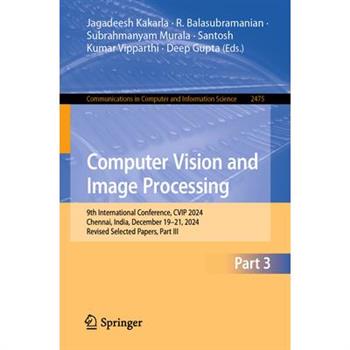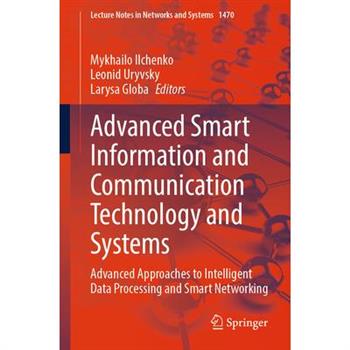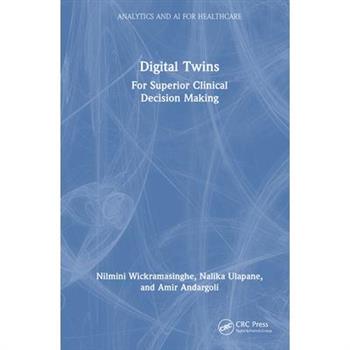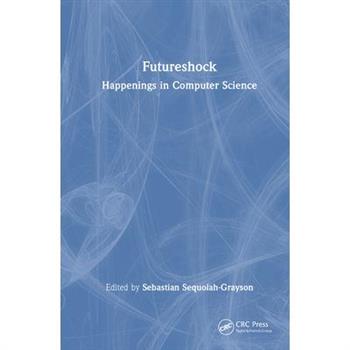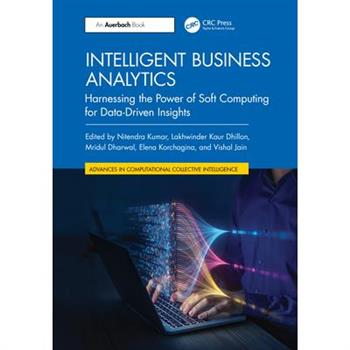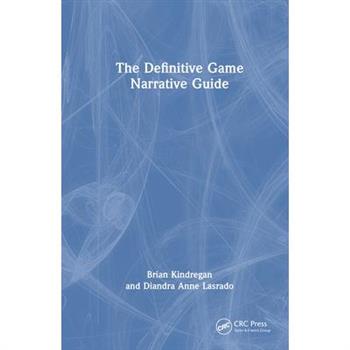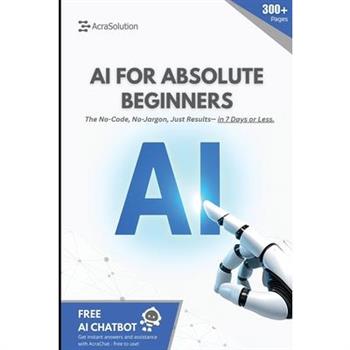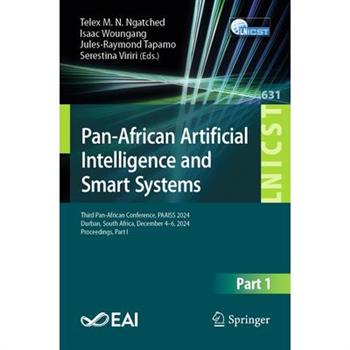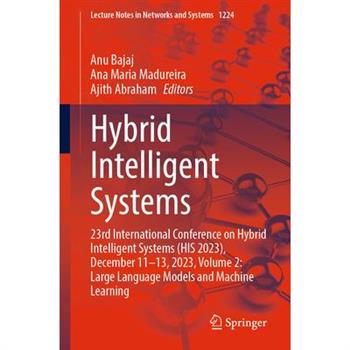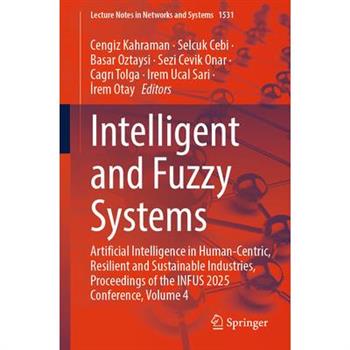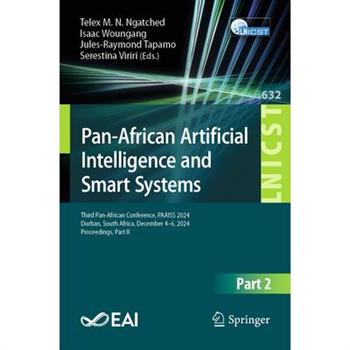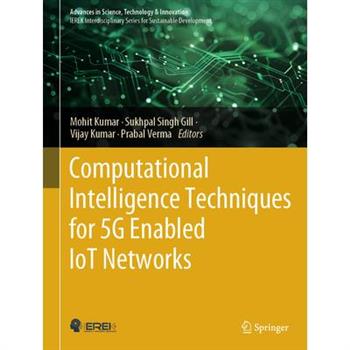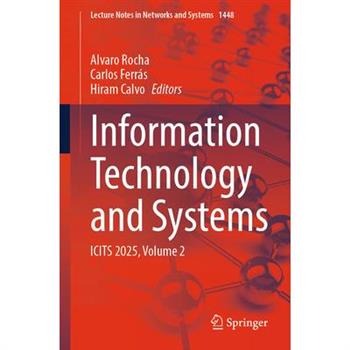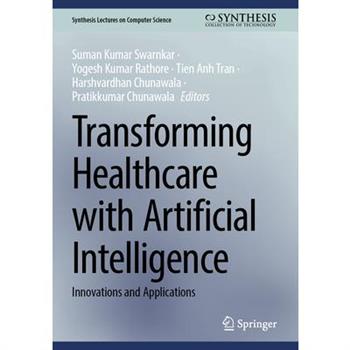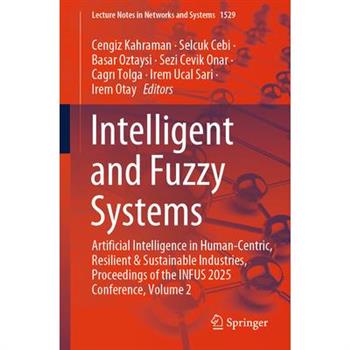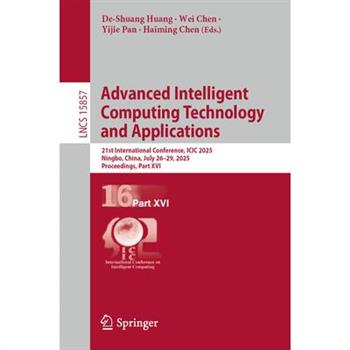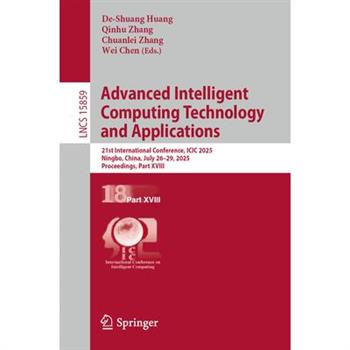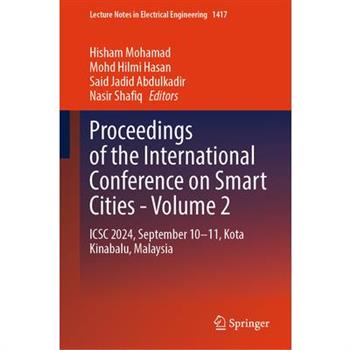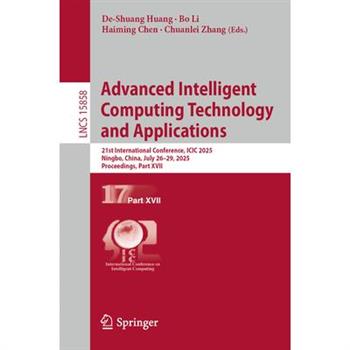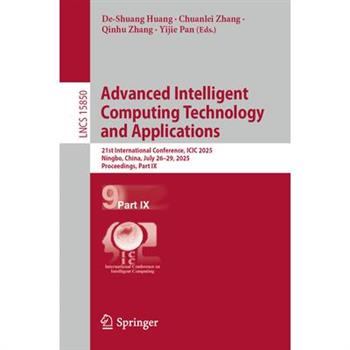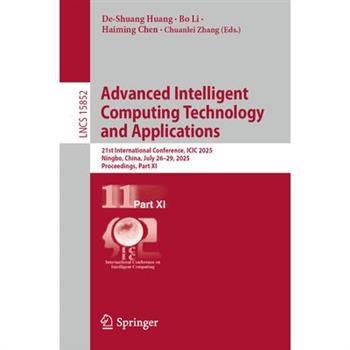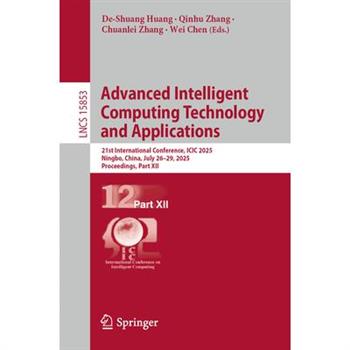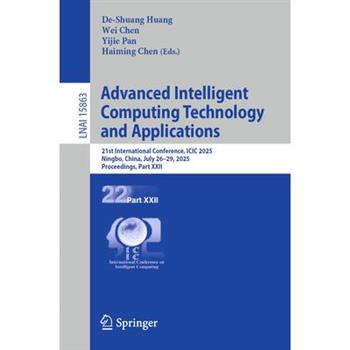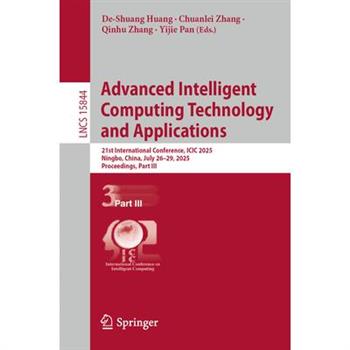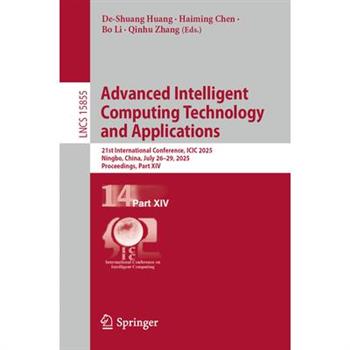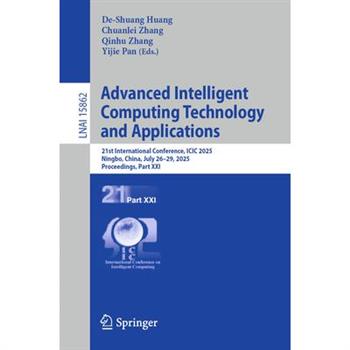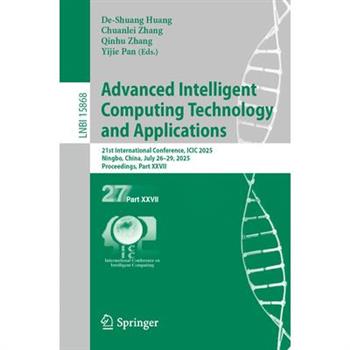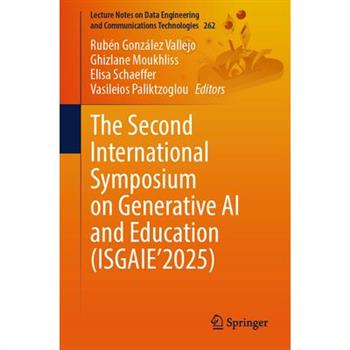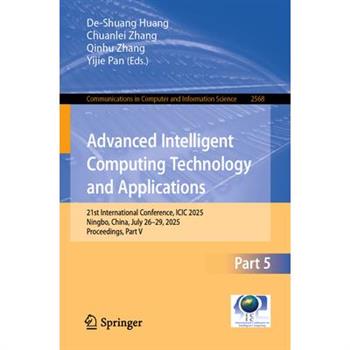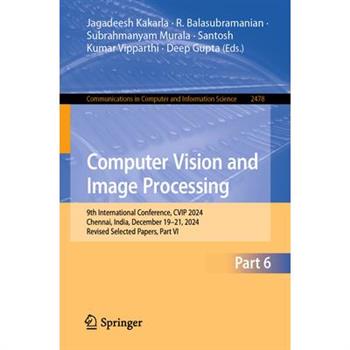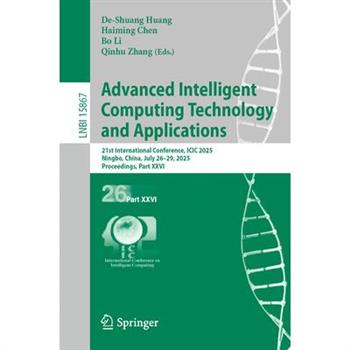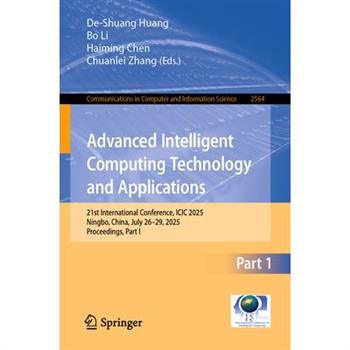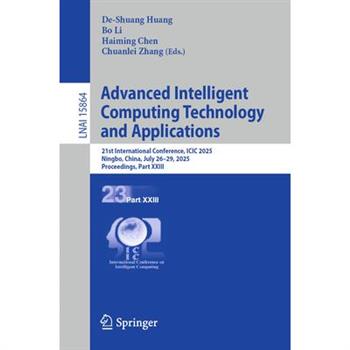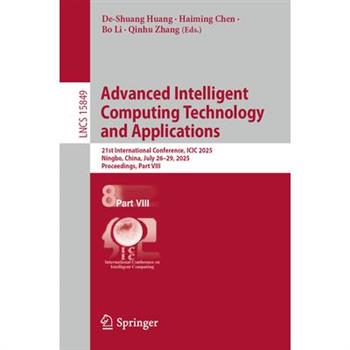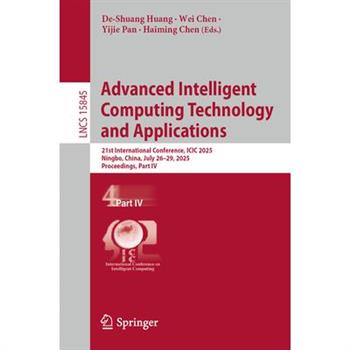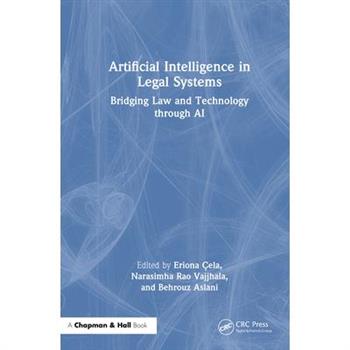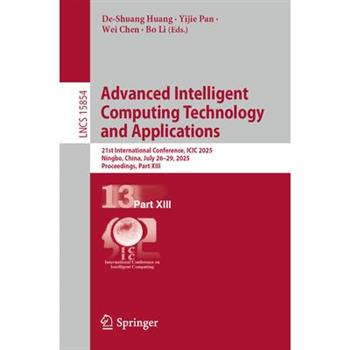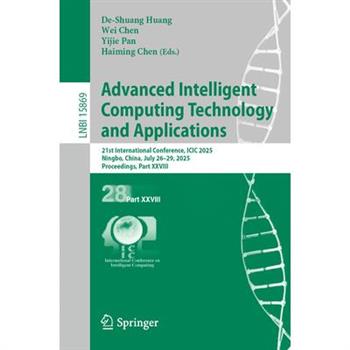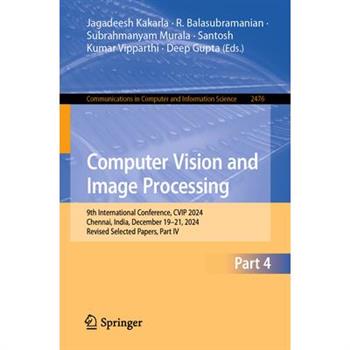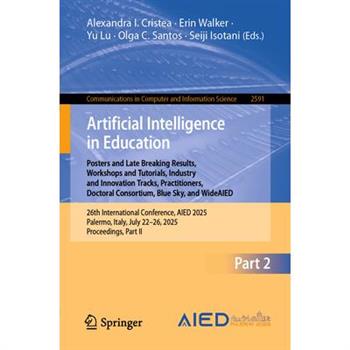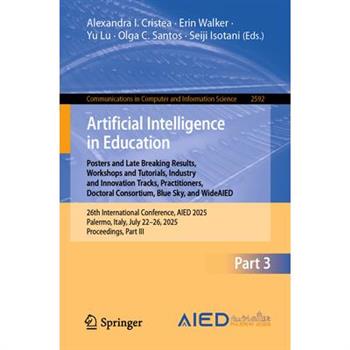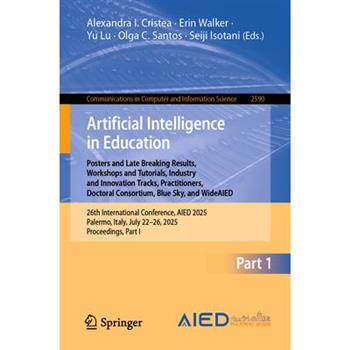Computer Vision and Image Processing
The Six-volume proceedings set CCIS 2473 and 2478 constitutes the refereed proceedings of the 9th International Conference on Computer Vision and Image Processing, CVIP 2024, held in Chennai, India, during December 19-21, 2024. The 178 full papers presented were carefully reviewed and selected from 647 submissions.The papers focus on various important and emerging topics in image processing, computer vision applications, deep learning, and machine learning techniques in the domain.
Digital Twins
This book centres on the topic of digital twins for superior healthcare decision support, as access is enabled to large volumes of multi-dimensional data such as patient's electronic medical records, medical scans, and data.
Futureshock
This book provides an accessible introduction to leading edge topics today, from AI ethics and cybersecurity, through to augmented realities, virtual interfaces, and much more. This collection of writings by experts in their respective fields, invites the reader to explore new worlds that race towards us.
Intelligent Business Analytics
This book explores the transformative role of soft computing methods in increasing business analytics, providing a comprehensive look into how these advanced methods can be applied to complex business data for meaningful insights. Through the integration of neural network, fuzzy logic, genetic algorithms, artificial intelligence, machine learning, deep learning, and other innovative approaches, Intelligent Business Analytics: Harnessing the Power of Soft Computing for Data- Driven Insights presents a roadmap for leveraging computational intelligence in diverse areas of business decision- making.Readers will venture from predictive analytics and customer segmentation to real- time decision support systems and many other applications. Soft computing's flexibility and applicability in the handling of uncertainty, ambiguity, and dynamic data environments shine throughout the book. Each chapter is created to be a base of theory and, at the same time, provide an applied example, so the book is appropriate for students, researchers, and professionals in the field.This book also discusses where the markets are heading and new applications that are in store for intelligent analytics to create a competitive advantage that also supports sustainable growth. At the end, this book is for those who want to learn more about using data-driven approaches and those who are ready to face the changes of the fast-evolving digital world.
The Definitive Game Narrative Guide
The Definitive Game Narrative Guide is the ultimate start and end point for storytelling in video games. Whether you're an aspiring writer or a seasoned game developer, this book offers an in-depth, comprehensive look at the entire narrative process.Written by two industry veterans with experience across some of the biggest AAA franchises, this guide covers the basics to the advanced, including the "why" for each topic as much as the "how."This book explores the nuances of world building, character development, interactive storytelling, and the technical challenges unique to game narrative. With real-world examples, practical insights, and expert advice, it provides a look into how game stories come together, from the smallest indie project to massive AAA teams.The Definitive Game Narrative Guide is more than a how-to book, as it also serves as an industry insider's perspective on what makes game storytelling truly great. It discusses techniques to navigate the creative workplace, working as a creative, and most importantly, collaborating with other creatives and disciplines, such as art and design.An essential tool for anyone looking to level up their understanding of game narrative. This book will help you bring unforgettable stories to life in an interactive form.
PRINCE2 Agile
Lead IT Projects with Agility and Precision In today's fast-paced digital environment, IT project success requires more than speed-it demands structure, adaptability, and strategic control. PRINCE2 Agile brings together the governance strengths of PRINCE2 with the flexibility of Agile frameworks like Scrum, Kanban, and Lean. This concise yet comprehensive guide explores how to tailor PRINCE2 principles for Agile delivery, manage compliance in iterative workflows, and apply best practices across software, infrastructure, and DevOps. Ideal for academic study, certification preparation, and enterprise application, it offers the tools and insights needed to lead complex projects with confidence. Whether you're pursuing professional accreditation or managing real-world transformations, this book will help you deliver results-faster, smarter, and with greater assurance.
Paradata
To make sense of data and use it effectively, it is essential to know where it comes from and how it has been processed and used. This is the domain of paradata, an emerging interdisciplinary field with wide applications. As digital data rapidly accumulates in repositories worldwide, this comprehensive introductory book, the first of its kind, shows how to make that data accessible and reusable. In addition to covering basic concepts of paradata, the book supports practice with coverage of methods for generating, documenting, identifying and managing paradata, including formal metadata, narrative descriptions and qualitative and quantitative backtracking. The book also develops a unifying reference model to help readers contextualise the role of paradata within a wider system of knowledge, practices and processes, and provides a vision for the future of the field. This guide to general principles and practice is ideal for researchers, students and data managers. This title is also available as open access on Cambridge Core.
Azure for Developers - Third Edition
Advance your development career by mastering Microsoft Azure's latest tools and technologies to enhance existing applications and build powerful cloud-native solutionsKey Features: - Build and deploy Azure apps with web, serverless, and container-based architectures- Create end-to-end cloud solutions on Azure by integrating AI services, monitoring tools, and DevOps- Upskill confidently with practical insights and real-world development practices- Purchase of the print or Kindle book includes a free PDF eBookBook Description: Supercharge your development career by mastering Azure's evolving GenAI, container, and serverless capabilities to build scalable, secure applications with confidence. This third edition of Azure for Developers transforms complex cloud concepts into practical skills, guiding you through the design, deployment, and management of cloud-native solutions while eliminating infrastructure headaches.Fully updated with Azure's latest features, this hands-on guide helps you automate DevOps pipelines with GitHub Actions, deploy microservices using containers, and integrate generative AI via Azure OpenAI to modernize your development workflows. You will learn how to set up your environment, streamline app deployment, and implement robust service integrations using real-world best practices.The final section is a game-changer for developers who want to stay ahead of the curve. It shows you how to leverage Azure's AI and machine learning services to automate tasks, fine-tune models, and build intelligent assistants and next-generation workflows.By the end, you will have the confidence and capabilities to deliver production-grade cloud solutions that meet real-world demands and position yourself at the forefront of modern cloud development.What You Will Learn: - Integrate data solutions like Azure Storage and managed SQL databases into your applications- Embed monitoring into your application using Application Insights SDK- Develop serverless solutions with Azure Functions and Durable Functions- Automate CI/CD workflows with GitHub Actions and Azure integration- Build and manage containers using Azure Container Apps, Azure Container Registry (ACR), and App Service- Design powerful workflows with both low-code and full-code approaches- Enhance applications with AI and machine learning componentsWho this book is for: This book is for cloud developers and engineers building applications with Microsoft Azure, as well as those looking to begin a career in Azure development. While a basic understanding of programming concepts is recommended, the book covers both basic and advanced ideas and solutions, making it valuable for beginners and experienced developers looking to enhance their skills.Table of Contents- Getting Started with an Azure Account and Selecting an IDE- Choosing between Azure CLI and Azure PowerShell- Hosting Applications with Azure App Service- Developing Static Web Applications- Going Serverless with Azure Functions- Managing secrets and configuration in Azure - Integrating services with Azure Logic Apps- Building workflows using Durable Functions- Learning about Azure Container Registry- Building ad-hoc workloads using Azure Container Instances- Developing microservices with Azure Container Apps- Hosting containers with Azure App Service- Storing data with Azure Storage- Using queues in Microsoft Azure- Using relational databases in Microsoft Azure- Adding monitoring to your application- Integrating an application with Azure OpenAI service(N.B. Please use the Read Sample option to see further chapters)
AI For Beginners
���� AI for Beginners - Learn Artificial Intelligence the Easy WayDiscover the world of AI without coding, jargon, or confusion. This beginner-friendly guide is your shortcut to understanding artificial intelligence, even if you've never written a line of code. Whether you're curious about AI tools like ChatGPT, want to use automation in your business, or simply want to keep up with the future-this book makes AI simple and accessible.���� What You'll Learn in AI for Beginners: What Is AI? - A plain-English breakdown of artificial intelligence, machine learning, and generative AI.How AI Works - Explore neural networks, large language models (LLMs), and how AI learns from data.Practical AI Tools - Discover beginner-friendly tools to boost productivity, creativity, and business.AI in Everyday Life - See how AI impacts jobs, education, health, and social media.Using ChatGPT & Gemini - Learn how to ask the right prompts and get useful results from popular AI tools.Ethical AI - Understand AI risks, bias, and how to use it responsibly.Future-Proof Your Skills - Stay ahead by mastering the basics of AI that everyone will need to know.���� No Experience NeededThis book is designed specifically for non-technical readers, students, entrepreneurs, and anyone curious about AI. It's perfect for absolute beginners who want a fast, practical, and real-world introduction to AI.✅ Why This AI Guide Is DifferentUnlike complex textbooks or hype-filled articles, AI for Beginners gives you: Simple language, not tech talkHands-on examples and clear visualsImmediate, real-world applicationsA roadmap to start using AI today���� Who Should Read AI for Beginners?If you're overwhelmed by headlines about AI but don't know where to start, this guide is for you. Whether you're a student, small business owner, freelancer, or lifelong learner, AI for Beginners breaks it all down with step-by-step guidance.You'll gain confidence using AI tools like ChatGPT, Google Gemini, Microsoft Copilot, and more-without any prior knowledge. No algorithms, no math-just real-world explanations anyone can follow.���� Why Learn AI Now?Artificial intelligence is changing how we work, learn, and live. From smart assistants to content creation, AI is becoming essential. With AI for Beginners, you'll get ahead of the curve and avoid falling behind in a tech-driven world.Start your journey with the #1 beginner's guide to artificial intelligence-written in plain English and built for action.If you've been asking "Where do I start with AI?" - AI For Beginners is your number 1 choice.
Pan-African Artificial Intelligence and Smart Systems
This two-volume set LNICST 631 & 632 constitutes the proceedings of the Third Pan-African Conference on Pan-African Intelligence and Smart Systems, PAAISS 2024, which was held in Durban, South Africa, during December 4-6, 2024. The 39 full papers presented in this volume were carefully reviewed and selected from 103 submissions. They are organized according to the following topics: Part-I: Artificial Intelligence in Medicine; Smart Systems Enabling Technologies; and Artificial Intelligence-Enabled Communication Systems.Part-II: Artificial Intelligence Theory and Methods; Artificial Intelligence and Smart Systems; Remote sensing and Artificial Intelligence.
Intelligent and Fuzzy Systems
Artificial Intelligence in Human-Centric, Resilient & Sustainable Industries This book focuses on benefiting artificial intelligent tools in our business and social life under emerging conditions. Human-centric, resilient, and sustainable industries are built on ideals like human-centricity, ecological advantages, or social benefits. The mission of human-centric artificial intelligence is to improve people's lives by offering solutions that boost productivity, accessibility to resources, security, well-being, and general quality of life. The latest intelligent methods and techniques on human-centric, resilient, and sustainable industries are introduced by theory and applications. This book covers the chapters of world-wide known experts on machine learning, medical image processing, process intelligence, process mining, and others. The intended readers are intelligent systems researchers, lecturers, M.Sc. and Ph.D. students trying to develop approaches giving human needs, values, and viewpoints top priority through artificial intelligent systems.
Pan-African Artificial Intelligence and Smart Systems
This two-volume set LNICST 631 & 632 constitutes the proceedings of the Third Pan-African Conference on Pan-African Intelligence and Smart Systems, PAAISS 2024, which was held in Durban, South Africa, during December 4-6, 2024. The 39 full papers presented in this volume were carefully reviewed and selected from 103 submissions. They are organized according to the following topics: Part-I: Artificial Intelligence in Medicine; Smart Systems Enabling Technologies; and Artificial Intelligence-Enabled Communication Systems.Part-II: Artificial Intelligence Theory and Methods; Artificial Intelligence and Smart Systems; Remote sensing and Artificial Intelligence.
Information Technology and Systems
This book comprises papers written in English and accepted for presentation and discussion at the 2025 International Conference on Information Technology & Systems (ICITS'25), held at Instituto Polit矇cnico Nacional (IPN), Mexico City, Mexico, from January 22 to 24, 2025. ICITS'25 serves as a global forum for researchers and practitioners to present and discuss recent findings, innovations, current trends, professional experiences, and challenges in modern information technology and systems research, along with their technological developments and applications. The main topics covered include: Information and Knowledge Management; Organizational Models and Information Systems; Software and Systems Modeling; Software Systems, Architectures, Applications, and Tools; Multimedia Systems and Applications; Computer Networks, Mobility, and Pervasive Systems; Intelligent and Decision Support Systems; Big Data Analytics and Applications; Human-Computer Interaction; Ethics, Computers, and Security; Health Informatics; Information Technologies in Education; Media, Applied Technology, and Communication. The primary audience for this book includes postgraduate students and researchers in the field of Information Systems and Technologies. The secondary audience consists of undergraduate students and professionals working in related domains.
Transforming Healthcare with Artificial Intelligence
This book presents the groundbreaking ways artificial intelligence (AI) is revolutionizing the healthcare industry and delves into how AI technologies are enhancing patient care, improving diagnostic accuracy, and streamlining healthcare operations. With real-world examples of how AI is being used in hospitals, clinics, and research institutions around the world as well as insights from leading experts who provide readers with access to cutting-edge knowledge and diverse perspectives on the future of medicine, the book provides a comprehensive overview of the innovations driving the future of medicine. Healthcare is facing big challenges including the growing demand for medical services, the need for more accurate diagnoses, and the pressure to reduce costs. AI can help solve these problems by making healthcare more efficient, precise, and accessible to everyone. Appropriate for healthcare professionals, technology enthusiasts, or simply curious readers about the future of healthcare, this book offers a clear and engaging look at how AI is reshaping the medical landscape for the better. Specifically, the book covers various aspects of AI in healthcare, including diagnostics, treatment planning, patient monitoring, hospital management, and public health. In addition, the book presents the ethical, legal, and societal implications, providing a well-rounded discussion that considers both the opportunities and challenges of AI in healthcare.
Intelligent and Fuzzy Systems
Artificial Intelligence in Human-Centric, Resilient & Sustainable Industries This book focuses on benefiting artificial intelligent tools in our business and social life under emerging conditions. Human-centric, resilient, and sustainable industries are built on ideals like human-centricity, ecological advantages, or social benefits. The mission of human-centric artificial intelligence is to improve people's lives by offering solutions that boost productivity, accessibility to resources, security, well-being, and general quality of life. The latest intelligent methods and techniques on human-centric, resilient, and sustainable industries are introduced by theory and applications. This book covers the chapters of world-wide known experts on machine learning, medical image processing, process intelligence, process mining, and others. The intended readers are intelligent systems researchers, lecturers, M.Sc. and Ph.D. students trying to develop approaches giving human needs, values, and viewpoints top priority through artificial intelligent systems.
Advanced Intelligent Computing Technology and Applications
This 20-volume set LNCS 15842-15861 constitutes - in conjunction with the 4-volume set LNAI 15862-15865 and the 4-volume set LNBI 15866-15869 - the refereed proceedings of the 21st International Conference on Intelligent Computing, ICIC 2025, held in Ningbo, China, during July 26-29, 2025. The total of 1206 regular papers were carefully reviewed and selected from 4032 submissions. This year, the conference concentrated mainly on the theories and methodologies as well as the emerging applications of intelligent computing. Its aim was to unify the picture of contemporary intelligent computing techniques as an integral concept that highlights the trends in advanced computational intelligence and bridges theoretical research with applications. Therefore, the theme for this conference was "Advanced Intelligent Computing Technology and Applications".
Advanced Intelligent Computing Technology and Applications
The 20-volume set LNCS 15842-15861, together with the 4-volume set LNAI 15862-15865 and the 4-volume set LNBI 15866-15869, constitutes the refereed proceedings of the 21st International Conference on Intelligent Computing, ICIC 2025, held in Ningbo, China, during July 26-29, 2025. The 1206 papers presented in these proceedings books were carefully reviewed and selected from 4032 submissions. They deal with emerging and challenging topics in artificial intelligence, machine learning, pattern recognition, bioinformatics, and computational biology.
Advanced Intelligent Computing Technology and Applications
The 20-volume set LNCS 15842-15861, together with the 4-volume set LNAI 15862-15865 and the 4-volume set LNBI 15866-15869, constitutes the refereed proceedings of the 21st International Conference on Intelligent Computing, ICIC 2025, held in Ningbo, China, during July 26-29, 2025. The 1206 papers presented in these proceedings books were carefully reviewed and selected from 4032 submissions. They deal with emerging and challenging topics in artificial intelligence, machine learning, pattern recognition, bioinformatics, and computational biology.
Advanced Intelligent Computing Technology and Applications
This 20-volume set LNCS 15842-15861 constitutes - in conjunction with the 4-volume set LNAI 15862-15865 and the 4-volume set LNBI 15866-15869 - the refereed proceedings of the 21st International Conference on Intelligent Computing, ICIC 2025, held in Ningbo, China, during July 26-29, 2025. The total of 1206 regular papers were carefully reviewed and selected from 4032 submissions. This year, the conference concentrated mainly on the theories and methodologies as well as the emerging applications of intelligent computing. Its aim was to unify the picture of contemporary intelligent computing techniques as an integral concept that highlights the trends in advanced computational intelligence and bridges theoretical research with applications. Therefore, the theme for this conference was "Advanced Intelligent Computing Technology and Applications". This 40-volume set LNCS 15842-15869 constitutes -the refereed proceedings of the 20th International Conference on Intelligent Computing, ICIC 2025, held in Ningbo, China, in July 2025.
Advanced Intelligent Computing Technology and Applications
This 20-volume set LNCS 15842-15861 constitutes - in conjunction with the 4-volume set LNAI 15862-15865 and the 4-volume set LNBI 15866-15869 - the refereed proceedings of the 21st International Conference on Intelligent Computing, ICIC 2025, held in Ningbo, China, during July 26-29, 2025. The total of 1206 regular papers were carefully reviewed and selected from 4032 submissions. This year, the conference concentrated mainly on the theories and methodologies as well as the emerging applications of intelligent computing. Its aim was to unify the picture of contemporary intelligent computing techniques as an integral concept that highlights the trends in advanced computational intelligence and bridges theoretical research with applications. Therefore, the theme for this conference was "Advanced Intelligent Computing Technology and Applications".
Advanced Intelligent Computing Technology and Applications
This 40-volume set LNCS 15842-15869 constitutes -the refereed proceedings of the 20th International Conference on Intelligent Computing, ICIC 2025, held in Ningbo, China, in July 2025.
Advanced Intelligent Computing Technology and Applications
The 20-volume set LNCS 15842-15861, together with the 4-volume set LNAI 15862-15865 and the 4-volume set LNBI 15866-15869, constitutes the refereed proceedings of the 21st International Conference on Intelligent Computing, ICIC 2025, held in Ningbo, China, during July 26-29, 2025. The 1206 papers presented in these proceedings books were carefully reviewed and selected from 4032 submissions. They deal with emerging and challenging topics in artificial intelligence, machine learning, pattern recognition, bioinformatics, and computational biology.
Advanced Intelligent Computing Technology and Applications
This 20-volume set LNCS 15842-15861 constitutes - in conjunction with the 4-volume set LNAI 15862-15865 and the 4-volume set LNBI 15866-15869 - the refereed proceedings of the 21st International Conference on Intelligent Computing, ICIC 2025, held in Ningbo, China, during July 26-29, 2025. The total of 1206 regular papers were carefully reviewed and selected from 4032 submissions. This year, the conference concentrated mainly on the theories and methodologies as well as the emerging applications of intelligent computing. Its aim was to unify the picture of contemporary intelligent computing techniques as an integral concept that highlights the trends in advanced computational intelligence and bridges theoretical research with applications. Therefore, the theme for this conference was "Advanced Intelligent Computing Technology and Applications".
Advanced Intelligent Computing Technology and Applications
This 20-volume set LNCS 15842-15861 constitutes - in conjunction with the 4-volume set LNAI 15862-15865 and the 4-volume set LNBI 15866-15869 - the refereed proceedings of the 21st International Conference on Intelligent Computing, ICIC 2025, held in Ningbo, China, during July 26-29, 2025. The total of 1206 regular papers were carefully reviewed and selected from 4032 submissions. This year, the conference concentrated mainly on the theories and methodologies as well as the emerging applications of intelligent computing. Its aim was to unify the picture of contemporary intelligent computing techniques as an integral concept that highlights the trends in advanced computational intelligence and bridges theoretical research with applications. Therefore, the theme for this conference was "Advanced Intelligent Computing Technology and Applications".
Advanced Intelligent Computing Technology and Applications
The 20-volume set LNCS 15842-15861, together with the 4-volume set LNAI 15862-15865 and the 4-volume set LNBI 15866-15869, constitutes the refereed proceedings of the 21st International Conference on Intelligent Computing, ICIC 2025, held in Ningbo, China, during July 26-29, 2025. The 1206 papers presented in these proceedings books were carefully reviewed and selected from 4032 submissions. They deal with emerging and challenging topics in artificial intelligence, machine learning, pattern recognition, bioinformatics, and computational biology.
Advanced Intelligent Computing Technology and Applications
The 20-volume set LNCS 15842-15861, together with the 4-volume set LNAI 15862-15865 and the 4-volume set LNBI 15866-15869, constitutes the refereed proceedings of the 21st International Conference on Intelligent Computing, ICIC 2025, held in Ningbo, China, during July 26-29, 2025. The 1206 papers presented in these proceedings books were carefully reviewed and selected from 4032 submissions. They deal with emerging and challenging topics in artificial intelligence, machine learning, pattern recognition, bioinformatics, and computational biology.
The Second International Symposium on Generative AI and Education (Isgaie'2025)
This book presents recent research on generative artificial intelligence (GenAI) and its transformative role in education. It constitutes the proceedings of the Second International Symposium on Generative AI and Education (ISGAIE'2025). The book explores recent advancements in GenAI technologies and their emerging impact on teaching and learning practices across educational contexts. Beyond practical applications and various use cases, the book addresses emerging challenges and opportunities, offering critical reflections on the ethical, pedagogical, and institutional implications of GenAI adoption in education. This book serves as a comprehensive reference for researchers, teachers, education designers, technology developers, and decision-makers who are working to rethink education using generative AI.
Advanced Intelligent Computing Technology and Applications
The 12-volume set CCIS 2564-2575, together with the 28-volume set LNCS/LNAI/LNBI 15842-15869, constitutes the refereed proceedings of the 21st International Conference on Intelligent Computing, ICIC 2025, held in Ningbo, China, during July 26-29, 2025. The 523 papers presented in these proceedings books were carefully reviewed and selected from 4032 submissions. This year, the conference concentrated mainly on the theories and methodologies as well as the emerging applications of intelligent computing. Its aim was to unify the picture of contemporary intelligent computing techniques as an integral concept that highlights the trends in advanced computational intelligence and bridges theoretical research with applications. Therefore, the theme for this conference was "Advanced Intelligent Computing Technology and Applications".
Computer Vision and Image Processing
The Six-volume proceedings set CCIS 2473 and 2478 constitutes the refereed proceedings of the 9th International Conference on Computer Vision and Image Processing, CVIP 2024, held in Chennai, India, during December 19-21, 2024. The 178 full papers presented were carefully reviewed and selected from 647 submissions.The papers focus on various important and emerging topics in image processing, computer vision applications, deep learning, and machine learning techniques in the domain.
Advanced Intelligent Computing Technology and Applications
The 20-volume set LNCS 15842-15861, together with the 4-volume set LNAI 15862-15865 and the 4-volume set LNBI 15866-15869, constitutes the refereed proceedings of the 21st International Conference on Intelligent Computing, ICIC 2025, held in Ningbo, China, during July 26-29, 2025. The 1206 papers presented in these proceedings books were carefully reviewed and selected from 4032 submissions. They deal with emerging and challenging topics in artificial intelligence, machine learning, pattern recognition, bioinformatics, and computational biology.
Advanced Intelligent Computing Technology and Applications
The 12-volume set CCIS 2564-2575, together with the 28-volume set LNCS/LNAI/LNBI 15842-15869, constitutes the refereed proceedings of the 21st International Conference on Intelligent Computing, ICIC 2025, held in Ningbo, China, during July 26-29, 2025. The 523 papers presented in these proceedings books were carefully reviewed and selected from 4032 submissions. This year, the conference concentrated mainly on the theories and methodologies as well as the emerging applications of intelligent computing. Its aim was to unify the picture of contemporary intelligent computing techniques as an integral concept that highlights the trends in advanced computational intelligence and bridges theoretical research with applications. Therefore, the theme for this conference was "Advanced Intelligent Computing Technology and Applications".
Advanced Intelligent Computing Technology and Applications
The 20-volume set LNCS 15842-15861, together with the 4-volume set LNAI 15862-15865 and the 4-volume set LNBI 15866-15869, constitutes the refereed proceedings of the 21st International Conference on Intelligent Computing, ICIC 2025, held in Ningbo, China, during July 26-29, 2025. The 1206 papers presented in these proceedings books were carefully reviewed and selected from 4032 submissions. They deal with emerging and challenging topics in artificial intelligence, machine learning, pattern recognition, bioinformatics, and computational biology.
Advanced Intelligent Computing Technology and Applications
This 20-volume set LNCS 15842-15861 constitutes - in conjunction with the 4-volume set LNAI 15862-15865 and the 4-volume set LNBI 15866-15869 - the refereed proceedings of the 21st International Conference on Intelligent Computing, ICIC 2025, held in Ningbo, China, during July 26-29, 2025. The total of 1206 regular papers were carefully reviewed and selected from 4032 submissions. This year, the conference concentrated mainly on the theories and methodologies as well as the emerging applications of intelligent computing. Its aim was to unify the picture of contemporary intelligent computing techniques as an integral concept that highlights the trends in advanced computational intelligence and bridges theoretical research with applications. Therefore, the theme for this conference was "Advanced Intelligent Computing Technology and Applications".
Advanced Intelligent Computing Technology and Applications
This 20-volume set LNCS 15842-15861 constitutes - in conjunction with the 4-volume set LNAI 15862-15865 and the 4-volume set LNBI 15866-15869 - the refereed proceedings of the 21st International Conference on Intelligent Computing, ICIC 2025, held in Ningbo, China, during July 26-29, 2025. The total of 1206 regular papers were carefully reviewed and selected from 4032 submissions. This year, the conference concentrated mainly on the theories and methodologies as well as the emerging applications of intelligent computing. Its aim was to unify the picture of contemporary intelligent computing techniques as an integral concept that highlights the trends in advanced computational intelligence and bridges theoretical research with applications. Therefore, the theme for this conference was "Advanced Intelligent Computing Technology and Applications".
Artificial Intelligence in Legal Systems
This book presents a comprehensive analysis of the transformative impact of artificial intelligence (AI) across legal frameworks within the European Union and beyond. It is a key resource for postgraduate students, researchers, and professionals in legal fields seeking to better understand the benefits and risks of AI.
Advanced Intelligent Computing Technology and Applications
This 20-volume set LNCS 15842-15861 constitutes - in conjunction with the 4-volume set LNAI 15862-15865 and the 4-volume set LNBI 15866-15869 - the refereed proceedings of the 21st International Conference on Intelligent Computing, ICIC 2025, held in Ningbo, China, during July 26-29, 2025. The total of 1206 regular papers were carefully reviewed and selected from 4032 submissions. This year, the conference concentrated mainly on the theories and methodologies as well as the emerging applications of intelligent computing. Its aim was to unify the picture of contemporary intelligent computing techniques as an integral concept that highlights the trends in advanced computational intelligence and bridges theoretical research with applications. Therefore, the theme for this conference was "Advanced Intelligent Computing Technology and Applications".
Advanced Intelligent Computing Technology and Applications
The 20-volume set LNCS 15842-15861, together with the 4-volume set LNAI 15862-15865 and the 4-volume set LNBI 15866-15869, constitutes the refereed proceedings of the 21st International Conference on Intelligent Computing, ICIC 2025, held in Ningbo, China, during July 26-29, 2025. The 1206 papers presented in these proceedings books were carefully reviewed and selected from 4032 submissions. They deal with emerging and challenging topics in artificial intelligence, machine learning, pattern recognition, bioinformatics, and computational biology.
Computer Vision and Image Processing
The Six-volume proceedings set CCIS 2473 and 2478 constitutes the refereed proceedings of the 9th International Conference on Computer Vision and Image Processing, CVIP 2024, held in Chennai, India, during December 19-21, 2024. The 178 full papers presented were carefully reviewed and selected from 647 submissions.The papers focus on various important and emerging topics in image processing, computer vision applications, deep learning, and machine learning techniques in the domain.
Artificial Intelligence in Education. Posters and Late Breaking Results, Workshops and Tutorials, Industry and Innovation Tracks, Practitioners, Doctoral Consortium, Blue Sky, and Wideaied
This three-volume set CCIS 2590-2592 constitutes poster papers and late breaking results, workshops and tutorials, practitioners, industry and policy track, doctoral consortium, blue sky and wideAIED papers presented at the 26th International Conference on Artificial Intelligence in Education, AIED 2025, held in Palermo, Italy, during July 22-26, 2025. The 72 full papers and 73 short papers (72 of them presented as posters) presented in this book were carefully reviewed and selected from 296 submissions. They are organized in topical sections as follows: Part I: BlueSky; Practitioners, Industry and Policy; WideAIED; Doctoral Consortium. Part II: Late Breaking Results; Part III: Late Breaking Results; Workshops and Tutorials.
Artificial Intelligence in Education. Posters and Late Breaking Results, Workshops and Tutorials, Industry and Innovation Tracks, Practitioners, Doctoral Consortium, Blue Sky, and Wideaied
This three-volume set CCIS 2590-2592 constitutes poster papers and late breaking results, workshops and tutorials, practitioners, industry and policy track, doctoral consortium, blue sky and wideAIED papers presented at the 26th International Conference on Artificial Intelligence in Education, AIED 2025, held in Palermo, Italy, during July 22-26, 2025. The 72 full papers and 73 short papers (72 of them presented as posters) presented in this book were carefully reviewed and selected from 296 submissions. They are organized in topical sections as follows: Part I: BlueSky; Practitioners, Industry and Policy; WideAIED; Doctoral Consortium. Part II: Late Breaking Results; Part III: Late Breaking Results; Workshops and Tutorials.
Artificial Intelligence in Education. Posters and Late Breaking Results, Workshops and Tutorials, Industry and Innovation Tracks, Practitioners, Doctoral Consortium, Blue Sky, and Wideaied
This three-volume set CCIS 2590-2592 constitutes poster papers and late breaking results, workshops and tutorials, practitioners, industry and policy track, doctoral consortium, blue sky and wideAIED papers presented at the 26th International Conference on Artificial Intelligence in Education, AIED 2025, held in Palermo, Italy, during July 22-26, 2025. The 72 full papers and 73 short papers (72 of them presented as posters) presented in this book were carefully reviewed and selected from 296 submissions. They are organized in topical sections as follows: Part I: BlueSky; Practitioners, Industry and Policy; WideAIED; Doctoral Consortium. Part II: Late Breaking Results; Part III: Late Breaking Results; Workshops and Tutorials.




